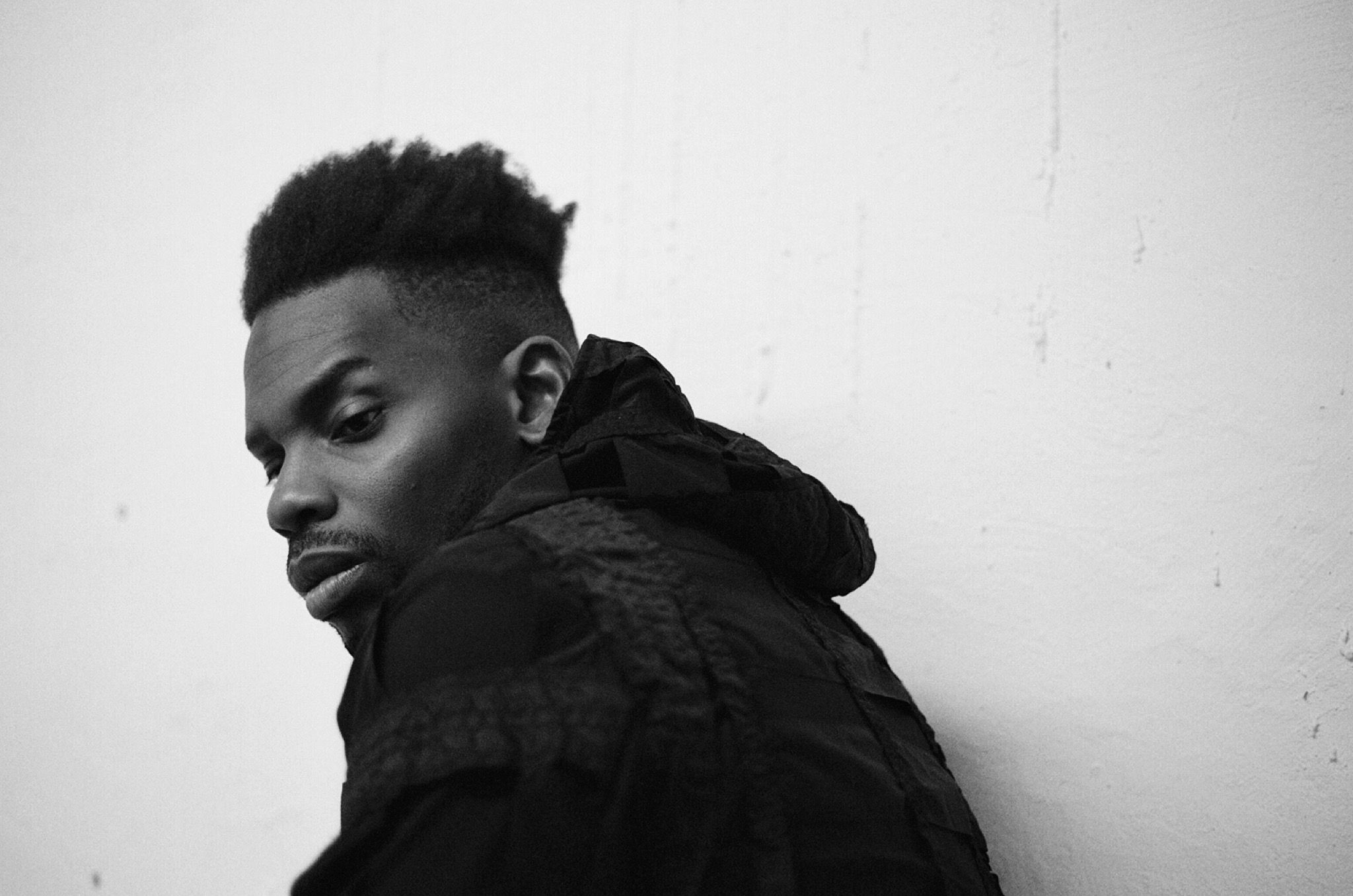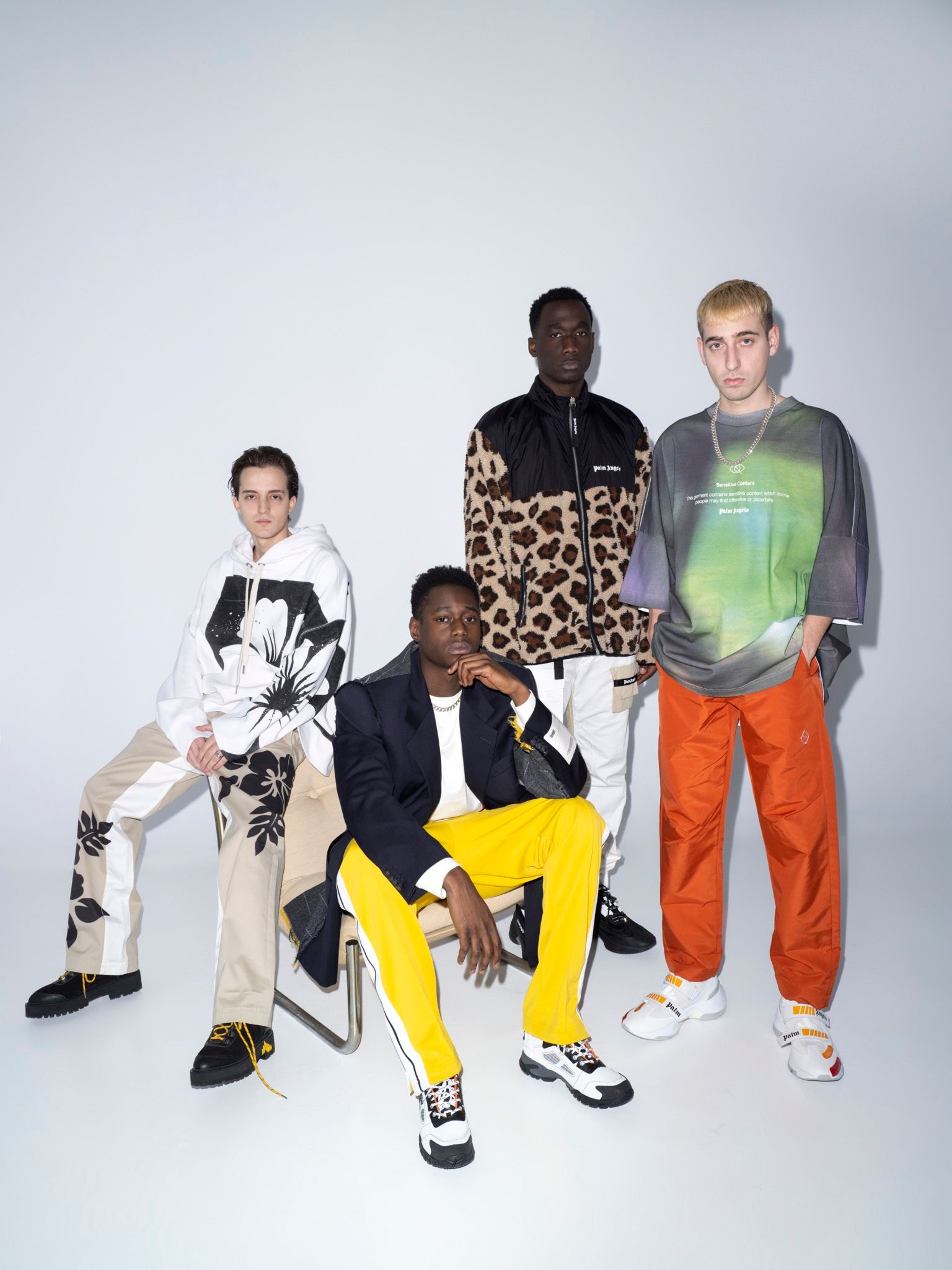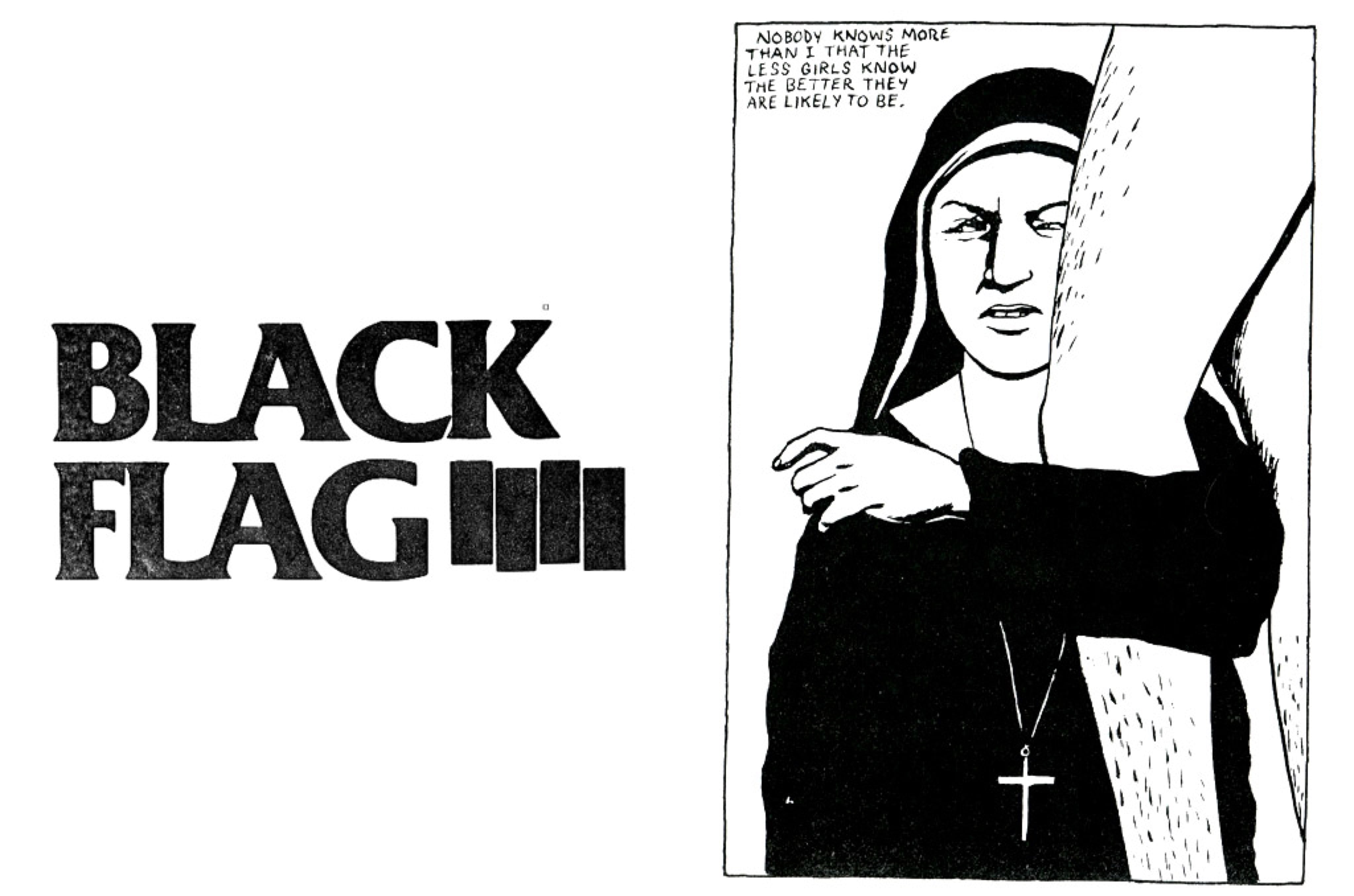Legion of DUMA: Nairobi’s hardcore duo premieres a new video
|Octavia Bürgel
Founded by Lord Spike Heart, also known as Martin Khanja, and Sam Karugu, DUMA is the band alchemizing East Africa’s latest hardcore sound. Khanja and Karugu, recognized in Nairobi’s underground scene for their work with Lust of a Dying Breed and Seeds of Datura, joined forces last year to imagine a new kind of “future music.” “People are tired and they’re fucking bored,” Karugu tells me. All the more imperative to make – in his words – “fucked up music that I’ve never heard before.”
Appearing late on the band’s self-titled album, “Pembe 666” is an ambient, granular rhythm that sounds like a Super 8 reel-to-reel sprocketing to infinity, layered under the sinister distortion of Khanja’s voice. Premiering today on 032c.com, the video is relatively subdued (others demand epilepsy warnings), shot on film with a reverence for the uncanny that, in its nonlinear nature, recalls experimental 1970s West African films such as Touki Bouki. Recorded over three months last year at Nyege Nyege Tapes – Kampala, Uganda’s preeminent electronic record label and fest – Duma’s debut is a spellbinding cauldron of sound. “Few records released this year better capture both the chaos and anxiety of our current moment,” writes Mehan Jayasuriya for Pitchfork. Grinding guitars, superhuman polyphonics, stuttering drum lines, and the group’s signature trap-electro instrumentation render Duma’s music more than metal, eclipsing of club, greater than the sum of its parts, and wholly indestructible.
Octavia Bürgel: Can you describe the styles of music might you hear in and around Nairobi?
Sam Karugu: First of all, in Nairobi, you’re going to hear a lot of music, mostly in the matatus or in clubs. It’s reggae or local music mostly, not a lot of metal. There’s no metal in the matatus or the normal, local culture. I think most people who do metal just got bored of being in a matatu and listening to the same shit over and over again as you’re going to work, and they started to make something new.
Martin Khanja: Yeah, most of the music you hear in Nairobi is about life in Nairobi. It’s mostly about hustling and getting money, surviving, having fun and partying, all that. But there’s a lot of gospel music too. People like that. Most of the underground music is not popular or on the radio, really. In Kenya, we value family – belonging in a group of people that you like – and appreciating women, so that music reflects those local values in Nairobi.
How is your music responding, disrupting, or contributing to the local music scene?
SK: We used to have a radio station for metal, but it died. People were listening to it, but they still had to kill it because they said it’s satanic or it’s what-what. But the metal scene is contributing, and we are contributing, because people need to listen to different things. Gengetone, this stuff – people need different things. You can’t just be listening to gospel and reggae forever. People are tired and they’re fucking bored.
MK: Yeah, that’s actually a big reason we went this way. It’s very different from what is normally there – what is allowed and popular. The music I liked I never found anywhere. I had to go to the Internet and all that. But it’s good to open up a totally new way of understanding things and a new market. Our music is contributing to all these artists around Kenya who are having new ideas about music – but they’re not sure about it yet. We’re like, “We like this kind of music, and we sing it anyway, so that’s bullshit – just make it happen.”
“Metal is about having this experience of being your true self – wherever you are, you are at your best.”
Lord Spike Heart (Martin Khanja)
Can you tell me how you formed the band and developed your sound?
SK: Martin was in Lust of a Dying Breed and then he was with this other guy, Leon, and they made a song. At the time I was using a lot of electronic music – synthesizers, Ableton, and shit like that. They told me they want to do electronic music in Uganda, and I was like, “OK, I’m down.” Then we came here and formed Duma, and then… Leon left.
MK: Mostly we had this idea. Back in 2016, I quit working in the corporate world. I was managing some security firm: sales directing and marketing. So I quit. I started farming, and I made this song in my small studio in Nakuru. Nyege Nyege picked it up later, in 2016, and hit us up. At that time, I was in Seeds of Datura – I’m still in that – but the only person who was really into Ableton and all of the electronic stuff was Sam at that point. He was really into a different way of experimenting. We had this idea of having a very hardcore sound that is unique and different, using all the influences we have from different genres that we like – metal, hip-hop, trap, all that stuff. So we started working, and we made this Duma sound. But it was really more of a journey, because everything we put on the album was from real deal life experiences. It’s unique because it’s a new sound; it’s different, but it’s still familiar because it has all of these influences that people already know – we just merged it more.
How does Duma’s sound differ from the bands you have been associated with in the past?
MK: The bands I’ve been in were playing jazz metal, or this alternative rock kind of sound, or different African stuff. Duma is different because we condensed all of that. In a band, you only have one drummer, but in Duma, you have four, five drums playing at the same time, and also the synthesizers and all of these sampled sounds – organic sounds from around us. For example, someone might be cutting wood – we’ll record that sound and put it in a song. I think Duma incorporates everything around us, and it’s more diverse, it’s more dynamic. Being in a normal band, it’s hard to branch out and really be dynamic like that.
SK: We put everything that we listen to into a blender. We’re in the age of the Internet now, and you can listen to everything from, like, the 1800s ’til now. So there’s no way one person is listening to one thing. Everyone is listening to a lot of stuff. The metal scene, I think, is stuck. They’re doing the same thing over and over again. People just want to be the next Cannibal Corpse, the next Chelsea Grin, the next Suicide Silence, or Slipknot, or whatever. But I think it’s time for the metal scene to do something different, and that’s what we’re doing.
Does the metal scene have its own experiential code, in the way that a genre like techno might have rules about how to enjoy club spaces, or hip-hop has particular rites and rituals of behavior?
SK: In a metal party, the first thing is that in the mosh pit, it looks like it’s violent, but it’s peaceful. You’re gonna mosh, but if someone falls down, you have to pick him up. No one is gonna lose their stuff at the club – it’s peaceful. The metal scene is peaceful. It’s about having fun, enjoying yourself, and expressing yourself.
MK: The reason I found myself in metal was this feeling that with every other genre of music – I don’t relate them as much. Metal is about having this experience of being your true self: wherever you are, you are at your best. You find people from all over the world who also feel that, and the experience is that you feel at home. You belong to a family, and everyone knows what you like, and you know what they like. No one is judging you for wearing some dark T-shirt, listening to that weird music, you know? It’s a very welcoming genre, a very welcoming thing to belong to, because there is no judgement. Whatever race you are, whatever your status in society is, whatever job you do – it doesn’t really matter. As long as you can have fun, experience life together, and do what you need to do, everyone is happy and in the zone. That’s why I like it. There’s no feeling like you were left behind, or that you don’t belong. As long as you’re in the vibe, on the frequency, it’s fine. Nobody will tell you, “You need to be like this,” and that’s wassup.
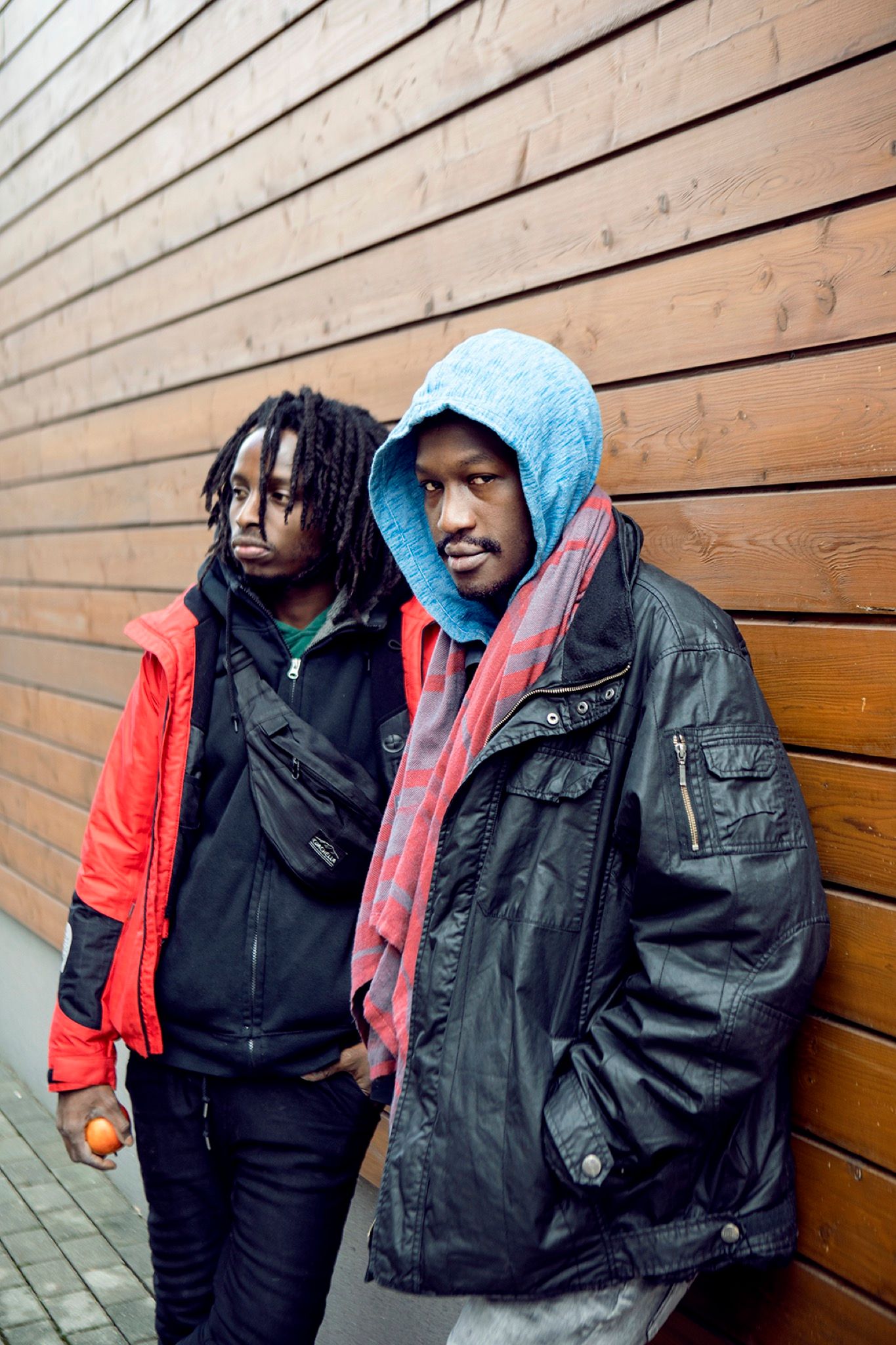
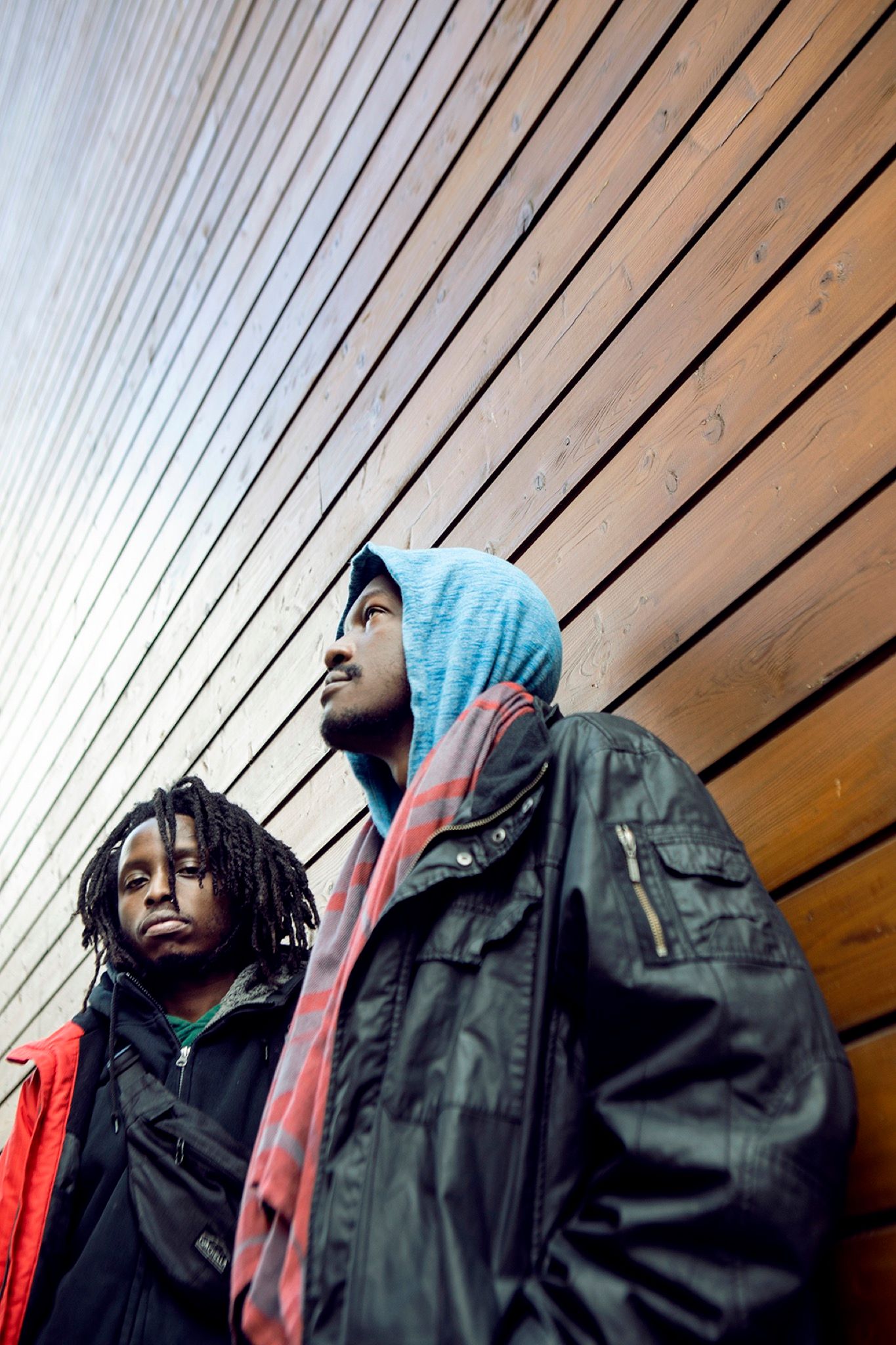
So would you say that you’re bending or moving between genres intentionally to make an explicit statement, or is your process more determined by intuition and feeling?
MK: Actually, I would say both. We use these elements that already exist, like this trap stuff, or hardcore distorted bass, or these psychedelic guitar riffs, but mostly it comes from a feeling we have. I can be working on the road with Sam, and we just get an idea. That’s how we make our music. We can be chilling with our friends, and then we just get ideas from our conversations, or from how we’re doing stuff, and it clicks. For me, it’s both, because I think if there’s not that level of intuition inside of yourself, then it’s not real. You’re trying to fake it. All of these elements are like plasticine – you need to mold them to make a model. You have the elements, but you use your own creativity, your own intuition, your own innovativeness to make something new and beautiful and weird and different. It’s not to make a statement; it’s just to express ourselves. We need to be alive, and the only way we can do that is just by being natural. That’s what really drives me. I don’t know who it will help or inspire, but as long as it’s out in the world, that’s OK for me.
SK: For example, a person asked me before, “What would the best decade be to be in music?” I told him that the best decade to be in music is right now, because you can listen to everything. If someone tells you they are just listening to one thing, they are lying. They are a hipster who is lying. Everyone listens to different shit. We shouldn’t even call it “genre-bending,” we should just call it “future music.” Of course, if you’re listening to a lot of stuff and you’re making music, then you’re gonna make some stuff that isn’t the genre you like. I would say it’s like this: in Kenya, it’s fucked up. You’re in a matatu, you’re going from home to work every day, and they’re gonna play you the same song over and over again. I don’t even like reggae, but I know a lot of reggae just from that. I like dub or some shit, but I don’t even like reggae. Whatever the fuck you’re listening to, just listen to it. Make what you’re making, and then make music. The thing is that you just have to keep making what you want to listen to. If you want to listen to something, you have to make it be there.
MK: Yeah, at the end of the day, you find that our music has a lot of subliminal messages. If you listen to it carefully, there’s a lot of messages hidden in it. And the point is just to wake people up, to inspire, to evolve.
“We want to inspire more people who feel like they’re not themselves, who feel like the world is oppressing them, to make them overcome all of these things that they are fighting every day. If we can make sure that is happening, I’ll be at peace.”
How does Nairobi’s metal scene compare to those in other parts of Africa? Have you toured, and how has your reception been?
SK: In Africa, there’s three huge scenes. There’s one in South Africa, there’s one in North Africa – Morocco, Tunisia, and that – and we have our scene in the middle. Ours is a bit smaller, because we don’t get many people coming. In North Africa, the scene is more like technical death metal; in South Africa it’s more death and alternative; and in our scene we have everything: we have bands that do alternative metal, and we have bands that do metalcore, psychedelic, death metal.
The funny thing is that the merging of these scenes happened during apartheid. We had these Zamrock bands from Zambia – Mosi O Tunya and them – who couldn’t record in Zambia or South Africa, so they had to come all the way to Kenya to record, and I think that’s how it started. But we are all connected; many bands come from South Africa and Morocco to play with us. Crystal Axis, a punk band in Kenya, for example, went to South Africa. We’re all together.
MK: So far we have toured more than most acts in our scene. The reception has been really different, because most people are surprised that this thing exists in Africa. The reception I’ve had in Poland, or in Germany, man, it was really insane. It’s so good to find all these people around us who really get it. When we show up, it’s really real; it’s not a joke, it’s not some poser business. We come from different countries, but when you meet others, you feel that you have known them all your life. We have been doing this for over ten years now – even before we started touring; we’ve been playing this stuff since we were teenagers. It’s really rewarding to see a positive reception, because we’ve been really working on this, and we believed in it through thick and thin, even if our friends or family didn’t sometimes. I really think our thing is showing the world that this stuff can happen in Africa, because mostly people think that this is just in the western world or in Asia. But we’re doing it, and we’re doing it well.
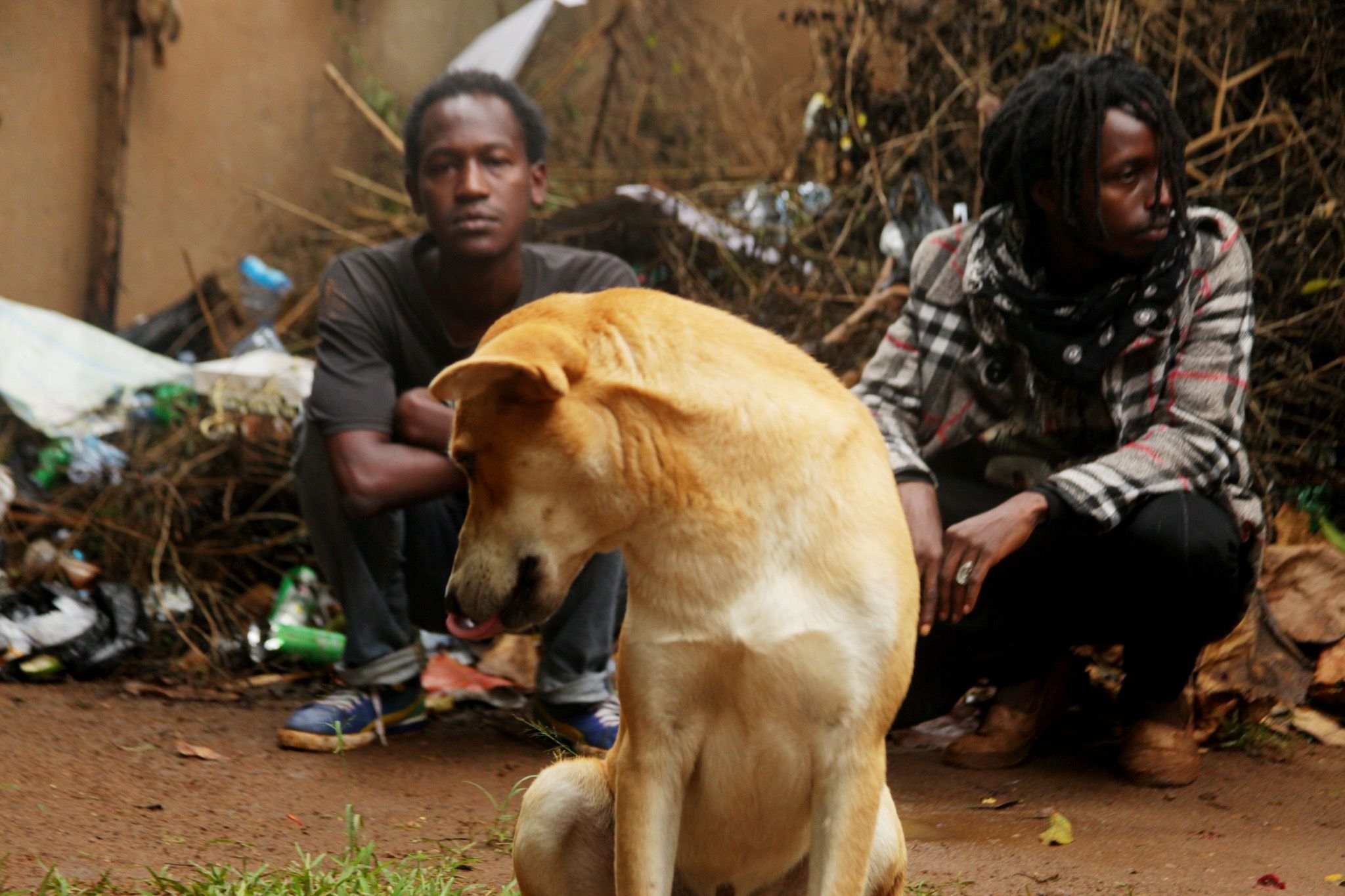
SK: I remember when Overthrust played the Wacken Festival, I was like, “Yo, that’s Overthrust from Botswana playing Wacken.” And then I was like, “That’s beautiful.” That means we can also do it. It’s been nice to show that there is also metal in Africa. It shouldn’t be something that doesn’t exist here. It already has, since the 70s.
I’d imagine that performing is important, since your music carries such visceral emotion. Is there a specific way that you go about your performances? What elements do you bring into live events that you can’t transmit with recorded music?
MK: We’ve been discussing this. The performances are very important. To me, this is business. When you’re performing, it’s like going to the market and selling your wares. So the most important element in performance is embodying the whole vibe, the whole feeling. Every song is a different element of feeling – some songs are a bit sad, some of them are extreme, some of them are in the middle. When we perform, we always keep that in mind. For the people who are in front of the stage, everything we do is real. I really like pumping serious energy into the performance, because the performance is very important. That’s how people get to listen to the music, even if they didn’t find the recording before.
After all of this practicing and rehearsing, when we come on stage we are celebrating all the hard work, we are having fun with our fans and the audience, and we are really in touch with them – we feel them. So they feel us, because we feed off of the energy of the crowd, you know? We bounce our energy off them, they bounce it to us, and we bounce it back. At the end of the day, man, it’s a trippy experience, and you feel so extremely present that you forget everything else. You’re just there, and we’re getting pits going; we’ve got people jumping up and down, people are shouting. It’s so much fun! Performing is in your face – it’s not something you can just listen to in your earphones. It’s real life. It’s very important to perform well, because it makes it even deeper for the people who listen to our albums. I feel like the main element that we have is that we really feed off of the energy of the crowd, and they feed off of the energy we have, and at the end of the day we create this whole organism. It’s really beautiful, man. Very magnificent.
SK: In Duma, we have two people. In electronic music usually there’s only one DJ, but in metal there’s five people, or even more, probably. So with Duma, to put out this emotion as two people, it’s hard, a bit. How we do it specifically is that we use the electronic gear.
“I’m tired of the capitalism in Kenya. We’re in the age of late capitalism, and nothing makes sense.”
What are the political underpinnings for your work? Are you responding to current events, or would you say it’s internal experience or existentialism that is informing your sound?
SK: I’m tired of the capitalism in Kenya. We’re in the age of late capitalism, and nothing makes sense. Money doesn’t make sense anymore. As a young man trying to find his way, who listened to metal and played for ten years and put his work into it – we didn’t get gigs. You get one gig and you get, like, 100 euros, or 20 euros. The political underpinning for me is that I’m tired of how the world is right now. I’m just tired.
MK: Personally, my main thing is that existential aspect of our music. I don’t know how I got to believe in borders, or race, or status in society. I don’t care about that. I care about being yourself, being what you believe in, pushing for your dreams to happen – having goals and having a team around you that holds you accountable so that you’re always on point.
Everyone right now is a clone; they are just the same. Being different is an uncool thing. Society worships people who are different, but they also discourage you from it on the personal, local level. That’s the thing I want to show people: you can do what the fuck you want, in any way you can, if you’re doing it based on your heart, your soul, your stuff, you know? That’s being successful, to me. People may start hating on you, even in your own family. But at the end of the day, you’re left with yourself. You’re just alone.
Don’t dress like normal people – that’s stupid to me. Don’t look like anyone else. Don’t do anything anyone else is doing. Because if you watch everyone around you, no one really knows what they’re doing – they’re just winging it. It’s better to do for yourself what you need to, and maybe you’ll inspire more people to realize that they don’t need to hurt other people to be happy and accomplish their dreams. You can just do what you need to, and you’ll feel fulfilled.
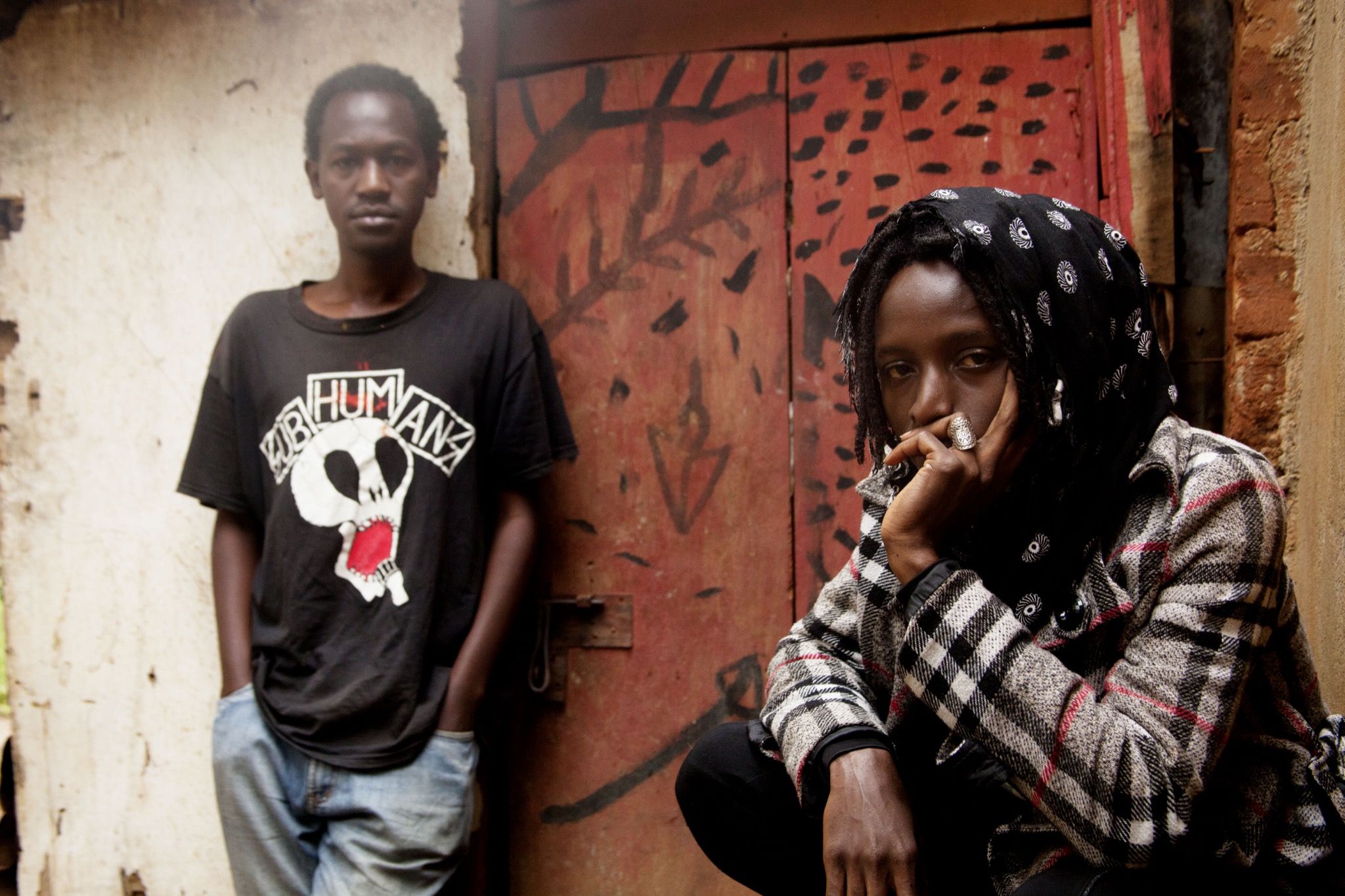
What are your goals for Duma?
SK: First of all, to get back on the road – with Covid, we can’t. And to show that our little scene in Nairobi exists. I mean, it’s not small – we are, like, 20,000 in number. We are there. We exist to show that we exist. Also to keep making more fucked up music that I’ve never heard before. We make music in the studio and we just run away; we’re like, “What is this that we have made?” That’s my goal for Duma – to make a new genre, to get back on the road, and to make people all over the world know that the metal scene in Kenya exists.
MK: My main goal for Duma is to make a genre for the future; that future music that kids who are born in 2070 will fuck with, you know? We make history and push the envelope far as fuck so that people who are coming in the future will know that stuff can go even further than that. Apart from that, I want to play in North Korea, man. And Pitcairn, Pitcairn Island. I just want to show that these kids from Kenya can do some serious international business, man.
Credits
- Text: Octavia Bürgel
